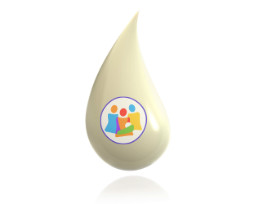Tips for Lactating Parents During the Holidays
The holidays can be a very busy time for families. In many families, the lactating parent takes on the tasks of planning gifts, meals, and travel to see family and friends. You may also feel obligated to host others if grandparents or other family are nearby. It is very common for all of the added tasks and activities to disrupt breastfeeding and pumping routines. This can lead to a change in milk production as well as your baby’s sleep schedule. As the parent of a new infant, you and anyone else in your household should be protective of your needs and your baby’s needs to ensure that you are able to maintain your breastfeeding relationship and milk production while also having an enjoyable holiday. It is totally fine to let others handle the planning and cooking and hosting this year. You should feel empowered to take your baby to another room or location for a feeding or nap, to maintain their routine regardless of where you are. Here are some tips for you to consider during the holidays:
What if You Don’t Want to Go?
Many parents wonder if they should travel during holiday time, especially if they have a newborn or an infant who is more vulnerable to severe illness such as a premature infant. Some parents feel completely overwhelmed with the idea of packing and traveling, especially if breastfeeding has been challenging or if the lactating parent has had postpartum health issues. Holidays also involve stress in visiting family with whom there are strained relationships, not to mention the risk of contracting illnesses such as colds, diarrhea and influenza. It is absolutely reasonable to tell friends and family that this is not the year for you to travel, and you would be happy to join them virtually. Talk to your physician to validate your concerns- they will likely agree with you! Tell your relatives that your physician agreed that it would be best for you to stay home. Don’t feel guilty. Asking a family with an infant and/or young children to travel is expecting a lot, and you have every right to do what you need to take care of yourselves and your children.
Maintain Your Breastfeeding or Pumping Routine
The key to adequate milk production is adequate milk removal. Do your best to feed your baby as you usually would and keep an eye out for their typical feeding times or feeding cues. The milk you are providing gives your baby nourishment and sustenance but is also essential to providing immune protection to them during a period when they will be exposed to more people and illnesses. If you are visiting away from home, ask your partner and/or friends and family members to help you find safe, restful places to feed your baby or to pump, where you won’t be disturbed.
Eat, Drink, and Rest
Make sure to prioritize taking care of yourself! Providing your milk for your baby is a lot of work and takes sufficient energy and time. It is important to take the time to rest, eat nutritious meals, and drink water to stay nourished and hydrated. You may want to enlist the help of a partner, parent or other loved one to help make sure you are eating, drinking, and taking time to recharge. Allow others to do the planning, prepping, and hosting if you can.
Look Out for Herbs That Can Impact Milk Production
Keep an eye out for sage, peppermint oil, and parsley in holiday foods. These may all reduce milk production, so limit how much you have of them.
Tips on Travel
Bring healthy snacks and plenty of water while traveling. Build in extra time during your travel to allow for breaks to breastfeed and/or pump, and time for rest. If you anticipate needing to pump, bring your pump with you on the plane, train or in the car. For airline travel in the USA, visit the TSA (Transportation Security Administration) website for detailed information on traveling with a breast pump and expressed breastmilk. Breastfeeding is permitted in all public areas, including airplanes, and trains, wherever you are legally allowed to be.
Illness in the Family
If you fall ill during the holidays, your milk production can decrease due to fever, vomiting, diarrhea, and insufficient fluid intake, Additionally, if your nursing child becomes ill, they may breastfeed less frequently or take smaller volumes, which can put you at risk for over-fullness, plugs, mastitis, and a drop in milk production. If you and/or your child are ill, make sure to take time to rest, keep up on your fluids, and pump if needed to maintain your milk production.
If you are planning to use any over-the-counter medications for your illness, be careful with cold medications. Decongestants such as pseudoephedrine and phenylephrine should be avoided as these are very effective at decreasing milk production. Diphenhydramine (Benadryl) may also decrease milk production when taken on a daily basis. Occasional use is usually not a problem. See our Over-the-Counter Medications During Lactation handout for more information.


